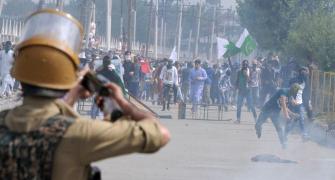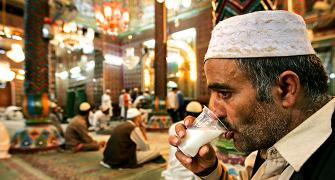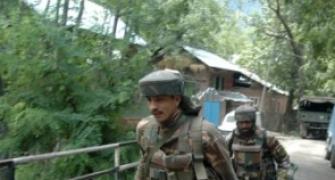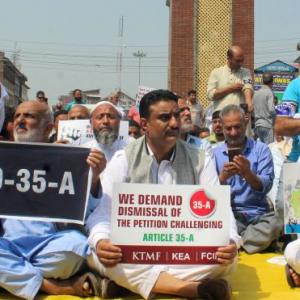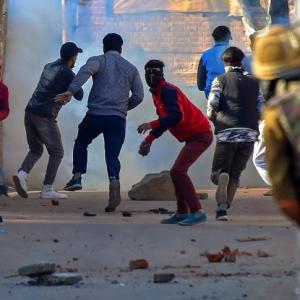Kashmir witnessed a second day of complete shutdown on Monday even as the Supreme Court adjourned its hearing into petitions challenging the constitutional validity of Article 35A.
The petitioners, among them the Delhi-based NGO We The Citizens, say the state’s autonomy granted by Article 35(A) and Article 370 of the Constitution discriminate against citizens from the rest of the country.

>> What is Article 35A?
Article 35A is a provision incorporated in the Constitution giving the Jammu and Kashmir legislature full discretionary power to decide who are ‘permanent residents’ of the state and confer on them special rights and privileges in public sector jobs, acquisition of property in the state, scholarships and other public aid and welfare.
The Article, often referred to as the permanent residents law, prohibits others from permanent settlement in the state, acquiring immovable property, taking up government jobs, scholarships and aid.
The provision mandates that no act of the legislature coming under it can be challenged for violating the Constitution or any other law of the land.
>> How did it come about?
Article 35A was incorporated into the Constitution by a presidential order in 1954, and states that all those living in Jammu and Kashmir at that time and also those who lived in the state for 10 years anytime since, would be considered as its permanent residents.
These residents have been issued a certificate, which entitles them to special benefits in employment etc. The biggest advantage being that only permanent residents have the right to own and buy property in the state.
>> Why the controversy over it
A non-governmental organisation, We The Citizens, filed a petition in the apex court in 2014 to abolish the law on the grounds that it was “unconstitutional”.
The NGO, in its petition, argued that Article 35A goes against the “very spirit of oneness of India” as it creates a “class within a class of Indian citizens”.
Two Kashmiri women have also challenged Article 35A contending that the provision is discriminatory as it disenfranchises their children. Under the original provisions of Article 35A, Kashmiri women marrying an 'outsider' loses all her rights and privileges.
>> Why are Kashmiris against it?
People in Kashmir don’t want Article 35A to be scrapped because of the immunity it provides. Without Article 35A, people from outside the state can settle in the Valley, buy up land and dilute the identity of the local people, they fear.
The state’s two main political parties, Peoples Democratic Party and National Conference, contend that there would be no J-K left if this provision is tampered with, and have vowed to fight the battle together.
“Today people cutting across party lines and other affiliations are united in their fight against dilution of Article 35A. As I have already stated before, fiddling with J-K’s special status will have catastrophic ramifications for the entire country. My father (former chief minister Mufti Mohammad Sayeed) took great pride in the special status that J-K enjoys under Article 370. He would often mention that while people of the state have made great sacrifices for larger goals, we need to safeguard what we already have,” the PDP president wrote on Twitter.
>> What is Modi government’s take on Article 35A?
The Union government decided to not file a counter-affidavit in order to leave the Supreme Court free to decide on what is essentially an interpretation of the law and the Constitution.

